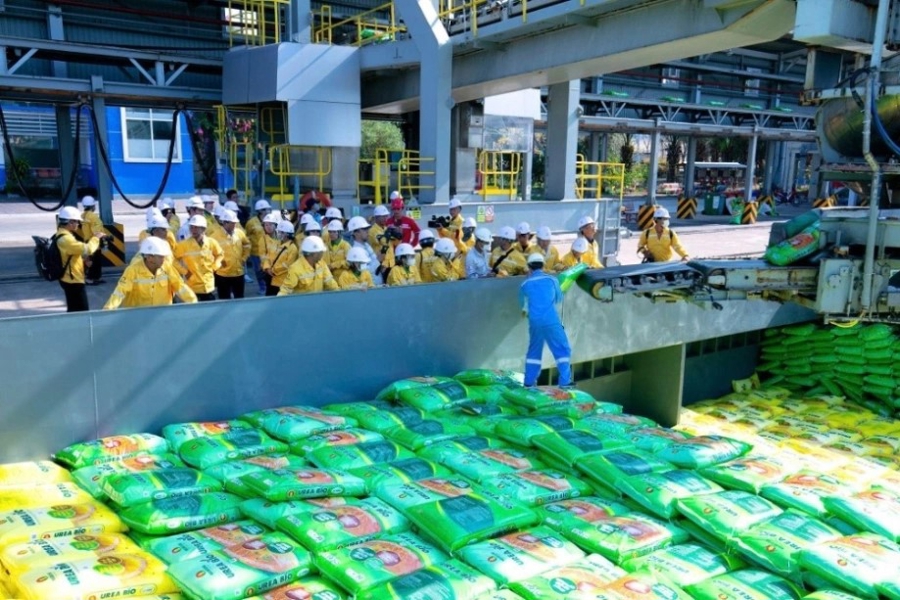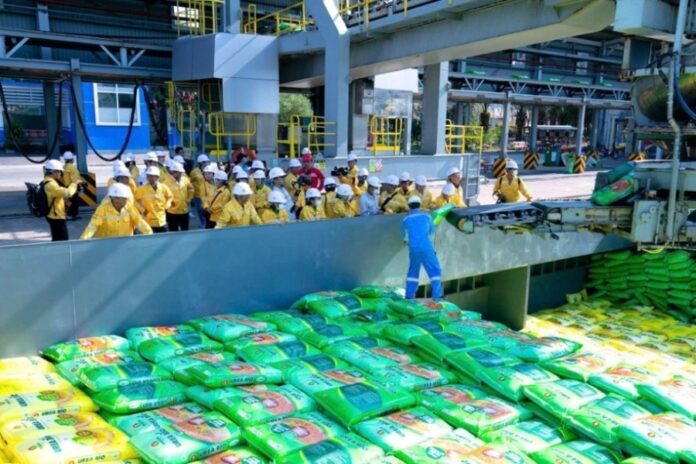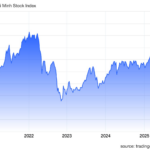The cost of gas, which typically accounts for 60-75% of nitrogen fertilizer production costs, has been a significant concern for fertilizer companies. While these companies have long-term gas supply contracts, gas prices are still subject to market fluctuations. The drop in oil prices has provided some relief by lowering gas prices and reducing production costs. However, as oil prices rise, input costs increase, impacting the final product’s price.
FERTILIZER INDUSTRY FACES A STORM OF RISING COSTS, CAUTIOUS MARKET
At the beginning of the year, there were signs of global economic deflation, with oil prices fluctuating between $61 and $64 per barrel. However, geopolitical tensions have pushed oil prices up to $74 per barrel, and they could reach $100-120 if the conflict persists.
Additionally, the prices of fertilizer products used as raw materials for complex fertilizer production have been steadily increasing. A 10-50% increase in single-nutrient fertilizer prices has led to a minimum 10% rise in NPK production costs—double the 5% VAT rate that will be implemented from July 1, 2025. This trend suggests that fertilizer prices will continue to rise in the coming months.

It’s worth noting that from July 2025, the Value-Added Tax Law No. 48/2024/QH15 will come into effect, imposing a 5% VAT on fertilizer products, whereas they are currently tax-exempt. PVCFC leaders believe that if the amended Law 71 is applied, allowing manufacturers to deduct input VAT, they will be better positioned to enhance their sales promotion activities, after-sales policies, and post-sales benefits. This would help ease the cost burden on farmers.
However, during this transitional phase, the absence of detailed guiding decrees from the government has made distributors and agents cautious about importing goods due to concerns over price and tax policy risks. This has resulted in a slowdown in the circulation of goods, impacting the fertilizer supply in the market and causing uncertainty among farmers as they prepare for the new crop season.
PRICE FREEZE COMMITMENT: PVCFC STEPS UP TO STABILIZE THE FERTILIZER MARKET
Amidst market uncertainties, PVCFC has committed to protecting its customers’ interests and supporting farmers by freezing prices during the transitional period of implementing the new VAT law. The company will continue to fulfill delivery contracts signed in June and early July.
For NPK Ca Mau fertilizer, PVCFC is not only maintaining the June price but also considering extending the delivery period to Q3 2025 for new orders placed this month. This flexibility will enable customers to better plan their imports before the tax policy changes. Notably, PVCFC will provide support and share losses with customers affected by the tax adjustments, including those with unsold inventory as of July 1, 2025.

While PVCFC has proactively implemented various solutions and specific policies, the company hopes for clearer support from managing authorities. PVCFC leaders expressed their desire for the Ministry of Finance to promptly issue guiding decrees to address the bottlenecks during this transitional stage. Clarifying the tax handling mechanism would not only reassure businesses in building their consumption plans but also ensure the legitimate rights of all parties, especially farmers.
By maintaining stable prices during this turbulent period, PVCFC is not only helping customers secure their input sources but also contributing to market stability, preventing price shocks during the tax policy transition. This demonstrates the company’s resilience and responsibility as a national brand evolving from a pure manufacturer to a partner in modern agriculture.
“Global Markets Rally: Oil Prices Surge and Iron Ore Rebounds”
“Oil prices surged nearly 3% on June 19 as the Israel-Iran conflict escalated, creating a ripple effect across global markets. This development overshadowed a relatively quiet day for other assets, with gold trading sideways, the dollar dipping to a weekly low, iron ore snapping a five-day losing streak, and Indian rice prices climbing on improved demand.”
“VPBank’s Expert Advice: Investors Should Buy on Dips and Avoid Chasing Strong Rallies”
“Despite the mounting geopolitical risks, global stock markets will always weather these storms and emerge resilient,” asserted Duc.





















